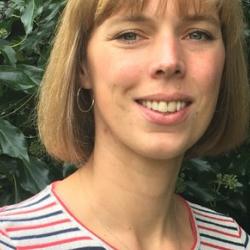Cambridge Centre for Frontotemporal Dementia and Related Disorders
As a neuroscientist I am interested in the microscopic structure of the human brain, in particular how changes in the number of brain cells and cell-to-cell connections relate to altered behaviour and cognitive function in brain illnesses. I study the brain at post-mortem, however, as the post mortem brains offers only a snapshot of the illness at the end stage, the ambition of my research is to assist in the development of new brain imaging tools to map and track brain illnesses in vivo. My current research explores such relationships in the severe and incurable neurodegenerative disorder, frontotemporal dementia (FTD).
Using a set of mathematical and statistically methods, called stereology, I am measuring the burden of protein pathology and numbers of brain cells.

Postal Address:
Cambridge Centre for
Frontotemporal Dementia and related disorders
Department of Clinical Neurosciences
University of Cambridge
Herchel Smith Building, Forvie Site
Robinson Way,
Cambridge Biomedical Campus,
Cambridge
CB2 0SZ, UK
Information provided by:
bmt33[at]medschl.cam.ac.uk

© 2025 University of Cambridge